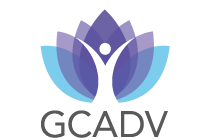What is Economic Justice?
Economic justice is the attainment of rightful access to basic financial and material resources and opportunities. Working toward economic justice for victims and survivors of domestic violence means working to break down the economic barriers that keep victims and survivors from becoming free – and staying free – from abusive relationships. It is the struggle to help victims and survivors to become economically empowered through equal access to money and other basic resources, such as housing, childcare, transportation, education, and workforce training.
The Economic Justice Project of the Georgia Coalition Against Domestic Violence has several components:
- Transitional Housing Project for Victims of Domestic Violence
- Training and Technical Assistance for Advocates
- Systems Advocacy
Transitional Housing Project
GCADV operates a HUD-funded Transitional Housing Program in partnership with three local domestic violence programs – Partnership Against Domestic Violence in Gwinnett County, Project Safe in Jackson County, and Circle of Hope in Habersham County. Through this program, GCADV provides housing and comprehensive supportive services to empower survivors to achieve financial independence and to live lives free of violence. Survivors entering the program may participate for up to 24 months.
Training and Technical Assistance for Advocates
GCADV offers ongoing training and technical assistance to advocates working at member domestic violence programs to assist them in addressing the economic abuse faced by the victims and survivors they serve, as well as to assist them in helping survivors achieve economic independence. GCADV provides guidance on how advocates can help victims and survivors access public benefits such as TANF, affordable housing, childcare, and other programs and services that help to increase the economic security of victims and survivors so that they may move on to lead lives free of violence.
Systems Advocacy
GCADV works with state and national partners and policymakers to ensure that the interests of survivors are heard in decision-making bodies that deal with issues that affect the economic well-being of survivors.
